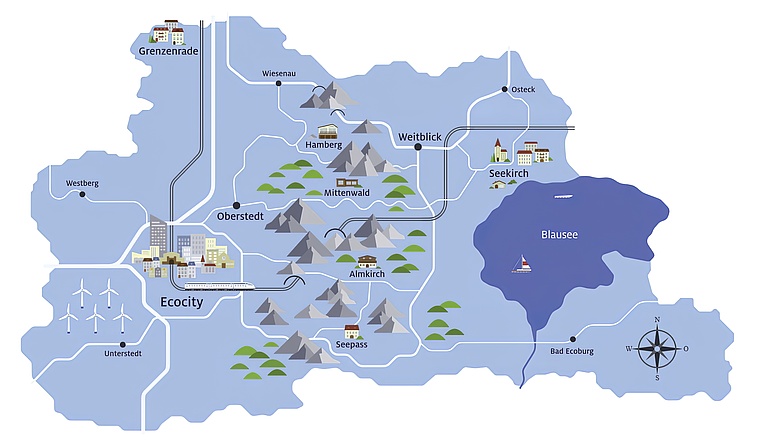Companies
- Employees with little to large prior knowledge
- Managers at all levels of management
Administration departments/ Associations
- Managers and employees working on projects in direct contact with the economy or with management responsibilities in administrative organisations with a market economic structure.
Public / political bodies
- Representatives of public bodies and members of commissions with comprehensive economic and ecological responsibilities in legislative and regulatory tasks.
Universities / Universities of Applied Sciences
- To increase in-depth knowledge and application in the subjects of Economics and Law, and also to increase awareness of environmental and ecological matters and sustainable company management
Higher universities of applied sciences
- To promote the understanding of overall entrepreneurial contexts of technically oriented professional colleges. As an application concept for business networking
Interesting results can also be achieved with heterogeneously composed groups. Ecoland can be used in cross-boundary co-operation between business and administration or between different levels of manage-ment as an efficient means of team development training. For optimum implementation, there should be between 18 and 30 people taking part.
